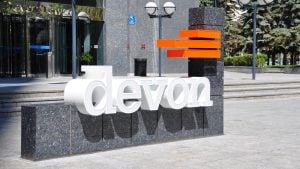
GARP, or “Growth at a Reasonable Price,” is an investing strategy popularized by Wall Street legend Peter Lynch, who managed the Fidelity Magellan Fund (MUTF:FMAGX). Peter Lynch’s approach garnered a 29.2% annualized return during his time and beat the S&P 500 index for several years. The GARP strategy looks at companies with growth and value characteristics to ensure investors are focused on those with high valuations and consistent growth.
With his renowned performance, GARP investing has become one of the most followed strategies by investors looking for that sweet spot between value and growth. S&P500 has even created an index focusing on these stocks, called the S&P500 GARP index. The index follows the same mantra as Peter Lynch, focusing on companies with superior earnings power, sensible valuation, impressive financial strength, and steady fundamental growth. This helps investors who want to adopt the GARP strategy easily choose stocks that fall in that category.
This article will look at three of its constituents that are the best in the pack.
Devon Energy Corporation (DVN)

An independent energy firm, Devon Energy Corporation (NYSE:DVN) specializes in the exploration, development, and production of fuel products like oil, natural gas liquids, and natural gas. While energy stocks have been strengthening thanks to rising oil prices, DVN is also slowly creeping up after hitting its 52-week low of $44.03 last March. Its slow descent gives investors room to buy in before it shoots up, reclaims its year high, and continues its upward trajectory.
Wall Street analysts love Devon, rating the company with a “Strong Buy” recommendation and a high target of $79.00 in the next 12 months, a potential upside of around 50%. The company is poised to capitalize on the high oil demand due to supply cuts. DVN hopes to add more shareholder value as it expands its stock repurchase program. In addition, DVN dividends could potentially increase and offer shareholders higher income on the back of rising crude oil prices, making it one of the more attractive GARP stocks in the market.
Cigna Group (CI)

Let’s face it: health services companies tend to be boring as some investors forget about them. That’s unfortunate because they’re missing out on some great GARP stocks like Cigna Group (NYSE:CI), which offers services that cater to the challenges of our healthcare system. These services include medical, pharmacy, dental, and behavioral product offerings like Cigna Healthcare and Evernorth Health Services. As insurance plan redemption and pharmacy benefits management grow, I expect this will translate to increased earnings.
While CI’s business does sound boring to some, it makes up for it with consistent profitability. Indeed, CI’s mission is to lower medical costs, boost the company’s image, retain its current customer base, and attract new clients. The results speak for themselves: the company has consistently beaten earning expectations in the last four quarters. Not only that, Cigna’s revenues have been consistently growing, and for shareholders, the company currently pays a 1.71% dividend yield – cementing its place as an attractive GARP stock to buy.
Arch Capital Group (ACGL)

Arch Capital Group Ltd. (NASDAQ:ACGL) is a Bermuda-based insurance company operating worldwide and focusing on specialty insurance. As a specialty insurance provider, ACGL insures specialty case properties that require unique assessment per case. The company also has a reinsurance segment that sells a portion of its exposure to other insurers to minimize its risk. Its other operations focus on mortgage and casualty & professional insurance.
ACGL is another stock beloved by Wall Street analysts with a “Strong Buy” recommendation and a $100.00 high estimate. Arch Capital’s earnings have also been consistently surpassing analysts’ estimates for the last four quarters. The company’s annual sales have also been growing over the previous five years and show no signs of slowing down. The industry’s favorable conditions have significantly boosted AGGL’s growth and standing in the S&P 500’s GARP index list.
On the date of publication, Rick Orford did not have (either directly or indirectly) any positions in the securities mentioned in this article. The opinions expressed in this article are those of the writer, subject to the InvestorPlace.com Publishing Guidelines.





